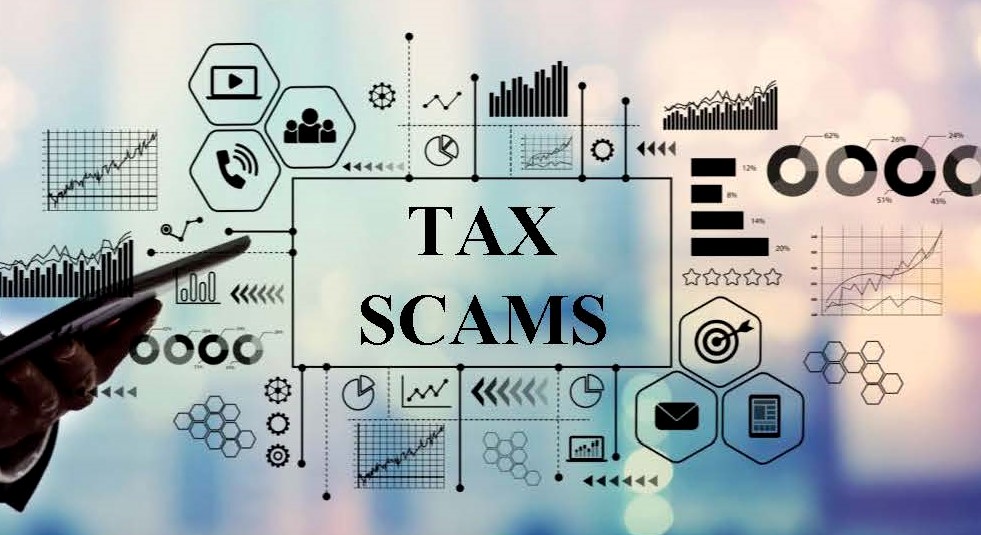Dirty Dozen Tax Scams for 2020
Every year the Internal Revenue Service (“IRS”) announces a list of twelve of the worst tax scams that taxpayer may encounter that year, it is referred to as the Dirty Dozen. This year’s list contains a special emphasis on scams related to Coronavirus tax relief. Taxpayers are encouraged to look out for these scams throughout the year, but they do tend to arise more during filing season.
This year’s Dirty Dozen scams are as follows:
1. PHISHING
This scam involves fake emails or websites aiming to steal personal information. The IRS will never initiate contact with taxpayers via email about a tax bill, refund, or Economic Impact Payments. Also, do not click on any links claiming to be from the IRS. The IRS Criminal Investigation division has seen an increase in phishing schemes using keywords such as “COVID-19,” “Coronavirus,” and “Stimulus.”
2. FAKE CHARITIES
Natural disasters and situations such as the COVID-19 pandemic tend to lead to a rise in fake charities being created. These fraudulent schemes normally start with unsolicited contact by telephone, text, social media, e-mail, or in-person using a variety of tactics. They may even use websites with names very similar to those of real charities in order to trick taxpayers into providing money or personal financial information. Legitimate charities will provide their Employer Identification Number (EIN), if requested, which can be used to verify their legitimacy. Taxpayers can use the Tax-Exempt Organization Search on IRS.gov to find legitimate charities.
3. THREATENING IRS IMPERSONATOR PHONE CALLS
A common IRS impersonation scam involves threatening phone calls from a criminal claiming to be with the IRS. These calls often take the form of a “robocall.” The IRS will never demand immediate payment, threaten, ask for financial information over the phone, or call about an unexpected refund or economic impact payment.
4. SOCIAL MEDIA SCAMS
Social media scams frequently use events like COVID-19 to try to trick people. The basic element of social media scams is convincing a potential victim that he or she is dealing with a person close to them that they trust via email, text, or social media messaging.
5. ECONOMIC IMPACT PAYMENT OR REFUND THEFT
Another scam that has arisen related to COVID-19 is the theft of economic impact payments. These schemes involve criminals’ filing false tax returns or supplying other bogus information to the IRS to divert economic impact payments or refunds to their addresses or bank accounts.
6. SENIOR FRAUD
Senior citizens and those who care about them need to be on alert for tax scams targeting older Americans. Phishing scams linked to COVID-19 have been a major threat this filing season. Seniors need to be alert for a continuing surge of fake emails, text messages, websites, and social media attempts to steal personal information.
7. SCAMS TARGETING NON-ENGLISH SPEAKERS
IRS impersonators and other scammers also target groups with limited English proficiency. A common IRS impersonation scam involves a phone call threatening the taxpayer with jail time, deportation, or revocation of a driver’s license from someone claiming to be with the IRS.
8. CORRUPT RETURN PREPARERS
Dishonest preparers pop up every filing season committing fraud, harming innocent taxpayers, or talking taxpayers into doing illegal things. Be aware of “ghost” preparers. These paid preparers will prepare your tax return but will not sign the return they prepare. By law, anyone who is paid to prepare or assists in preparing federal tax returns must have a Preparer Tax Identification Number (PTIN); and they must sign and include their PTIN on returns. Hiring a dishonest preparer can lead to potentially serious filing mistakes as well as possible tax fraud and the risk of losing their refund. Taxpayers should also avoid preparers who ask them to sign a blank return, promise a big refund before looking at the taxpayer’s records, or charge fees based on a percentage of the refund.
9. OFFER IN COMPROMISE MILLS
New to the list this year is a warning about misleading tax debt resolution companies that exaggerate their ability to settle tax debts for “pennies on the dollar” through an offer in compromise (OIC). These offers are available for taxpayers who meet very specific criteria under law to qualify for reducing their tax bill. These scams are commonly called OIC “mills”, which cast a wide net for taxpayers, charge them pricey fees and churn out applications for a program they are unlikely to qualify for.
10. FAKE PAYMENTS WITH REPAYMENT DEMANDS
In this scam, criminals trick taxpayers into sending them their refund. The criminal steals or obtains a taxpayer’s personal data and files a fraudulent return. Once the refund from the fraudulent return has been deposited into the taxpayers bank account, the criminal calls the taxpayer, posing as an IRS employee who tells the taxpayer that there has been an error and that the IRS needs the money returned immediately or penalties and interest will result. This scheme often involves the taxpayer’s being told to buy specific gift cards in the amount of the refund. The IRS will never demand payment of taxes using a specific method.
11. PAYROLL AND HR SCAMS
Tax professionals, employers and taxpayers need to be on guard against phishing designed to steal Form W-2s and other tax information. These are Business Email Compromise (BEC) or Business Email Spoofing (BES). This is particularly true with many businesses closed and their employees working from home due to COVID-19. Currently, two of the most common types of these scams are the gift card scam and the direct deposit scam. The gift card scam uses a compromised email account to send a request to purchase gift cards in various denominations. In the direct deposit scheme, the criminal may have access to the victim’s email account. The scammer may also impersonate the potential victim to have the organization change the employee’s direct deposit information to reroute their deposit to an account the scammer controls. The IRS asks that the direct deposit and other BEC/BES variations be reported to the FBI Internet Crime Complaint Center. Form W-2 scams should be reported to phishing@irs.gov (Subject: W-2 Scam).
12. RANSOMWARE
Ransomware is malware targeting human and technical weaknesses to infect a potential victim’s computer, network, or server. Malware is a form of invasive software that is often inadvertently downloaded by the user. Once downloaded, it tracks keystrokes and other computer activity. Victims are generally not aware of the attack until they try to access their data, or they receive a ransom request in the form of a pop-up window. These criminals frequently use anonymous messaging platforms and demand payment in virtual currency such as Bitcoin. Ransomware may be sent in a phishing email as an attachment or a link. The IRS and its Security Summit partners have advised tax professionals and taxpayers to use the free, multi-factor authentication feature being offered on tax preparation software products.
Official IRS guidance can be found at
https://www.irs.gov/newsroom/irs-unveils-dirty-dozen-list-of-tax-scams-for-2020-americans-urged-to-be-vigilant-to-these-threats-during-the-pandemic-and-its-aftermath .
If you feel as though you have been a victim to any of these scams, please do not hesitate to reach out to our office at (404) 365-5682.





